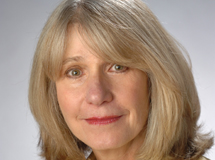Rose Tardiff ’15: Sparking Innovation With Data, Mapping and More
While pursuing a bachelor’s degree in geography in the Maxwell School, Rose Tardiff ’15 became involved with the Salt City Harvest Farm, a community farm near Syracuse where newcomers from all over the world grow food and make social connections….


 Patricia Demyan answers questions about Depression Screening Month (October). A brief online depression screening can be completed on the FSAP website. A more comprehensive screening is available in person at the FSAP office located at 111 Waverly Ave., Suite 215 (in the Health Services building). To schedule a screening, contact FSAP at 443-1087.
Patricia Demyan answers questions about Depression Screening Month (October). A brief online depression screening can be completed on the FSAP website. A more comprehensive screening is available in person at the FSAP office located at 111 Waverly Ave., Suite 215 (in the Health Services building). To schedule a screening, contact FSAP at 443-1087.